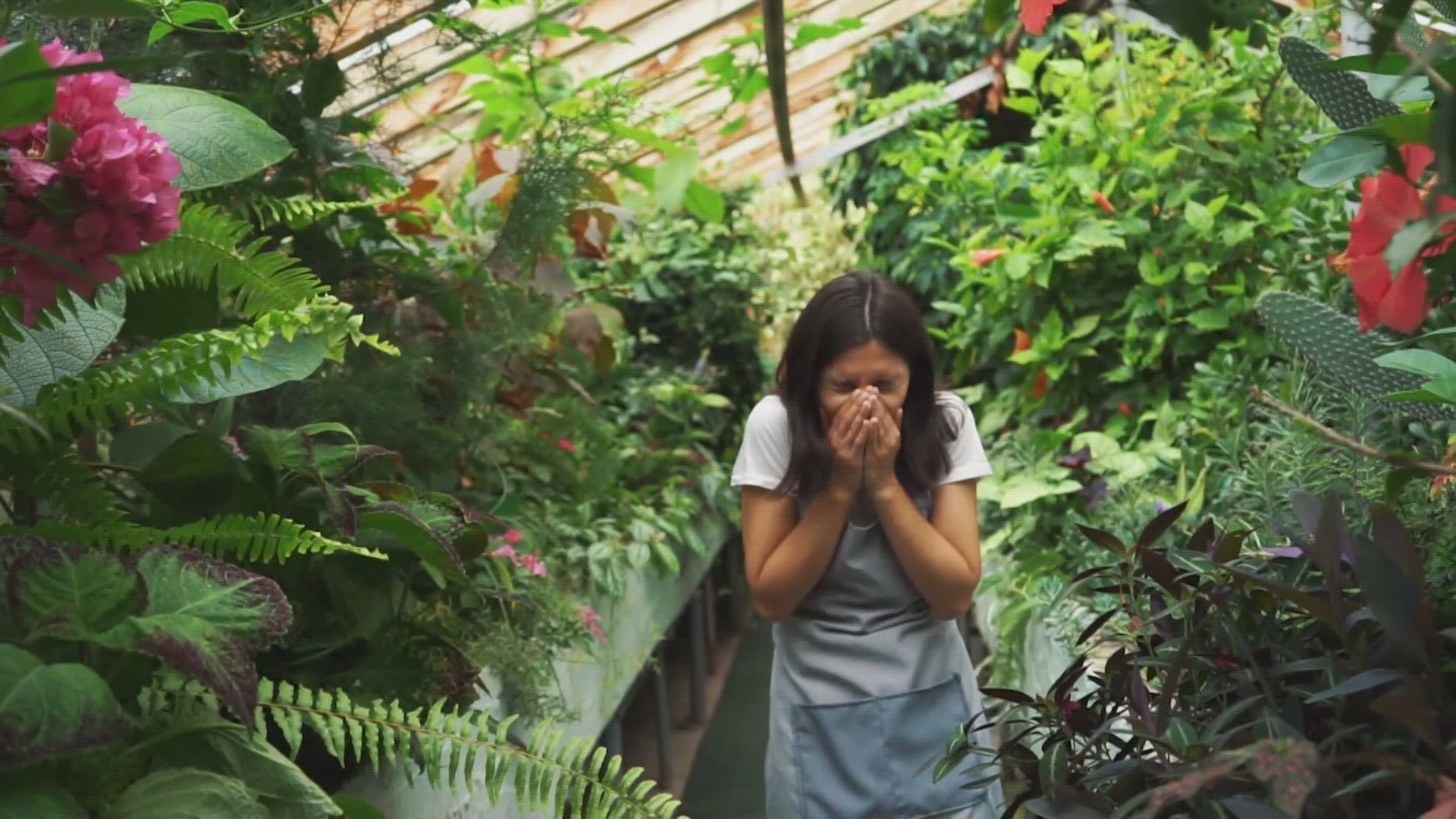WASHINGTON — Many of us look forward to spring, but with it comes allergies. The sneezing, the sinus pressure, runny noses and watery eyes can make it difficult for those who suffer from allergies.
The tree pollen count for the D.C. area is expected to be high all week. It’s powdery and thin, making it easy for the wind to carry tree pollen for miles.
The average date for peak tree pollen in the D.C. area is April 14. Experts say taking allergy medicine before symptoms start can be beneficial. Persistent symptoms can cause inflammation which, doctors say, makes allergy medications less effective.
Exercise can also help with your symptoms and that’s because moving around can make you less congested. Cardio specifically can open up your sinuses.
We spoke with assistant professor of allergy and immunology at the University of Virginia, Jeffrey Wilson, about how people can find relief as we get into the spring season. He said seeing an allergist for an allergy shot could be a game changer.
“Allergy shots are the one thing we have where we basically try to reprogram the immune system to get your immune system to chill out and not be so hyper reactive when you're exposed to pollen. And so people who have bad allergies, it can work very well,” Wilson said.
Professor Wilson said if you’re taking allergy medicine once a day and you’re still miserable, or the steroid nasal sprays aren't bringing any relief, you could potentially benefit from getting an allergy shot.
Keep in mind you should stay at your allergist’s office for at least 30 minutes after getting the allergy shot so they can monitor and treat you for a potential allergic reaction, which could include itching, shortness of breath, coughing or hives. Professor Wilson says most people are fine after getting one but there are some potential side effects to keep in mind.
Data from Climate Central shows that D.C. has a longer growing season because there are more days with temperatures that are not freezing. A longer growing season means a longer allergy season because trees and other plants have more time to release pollen.
With peak allergy season looming, you might consider keeping your windows and doors closed, especially on windy days. You should avoid outdoor activities in the early morning, and be sure to shower and change clothes after coming indoors.
"Have a great humidifier in the house that makes you have moisture. That just helps like clear out the sinus things like things like that. Make sure the humidifier is clean...making sure your air filters in the home you should be changing those every three months," said Dr. Gabrina Dixon, a hospital medicine attending at Children's National.
"One of the things that oftentimes, that happens with spring allergies is you get a bad peak, but then it'll tend to kind of level off. And then oftentimes you can get a bad second peak. So with a season like ours, it's hard to see if it's gonna be bad, or if it's just going to be early," added Professor Wilson.

